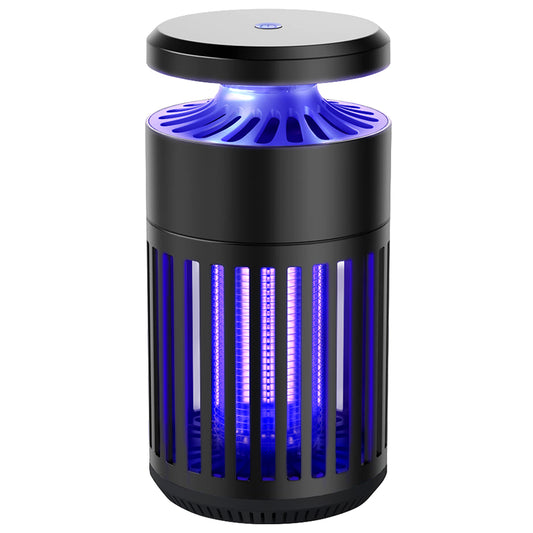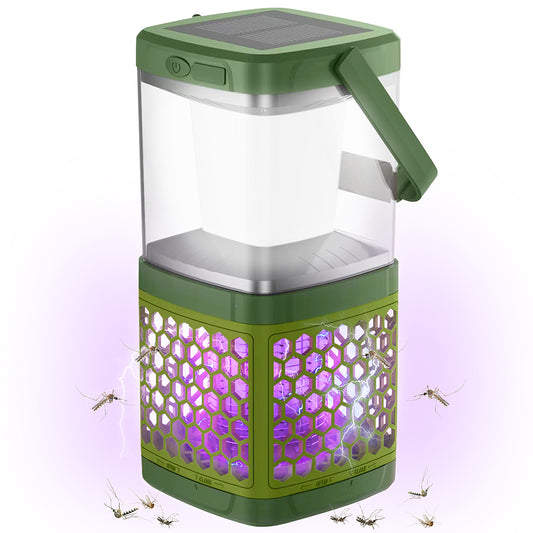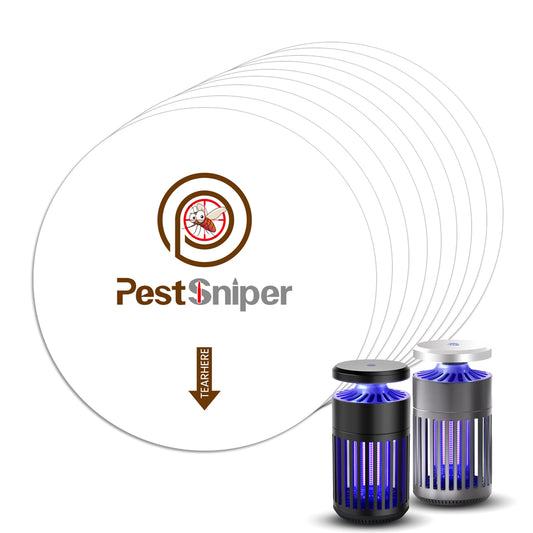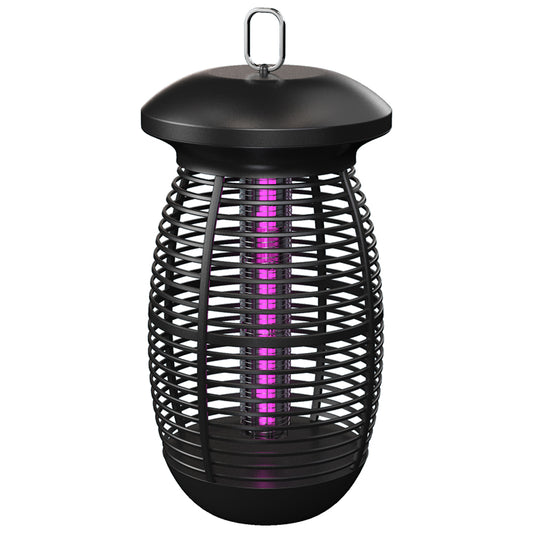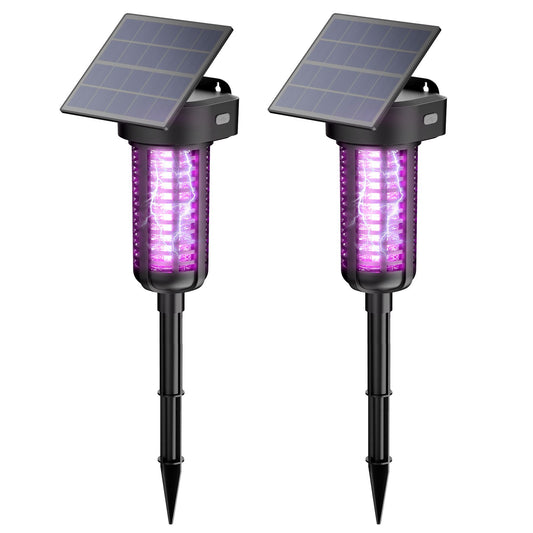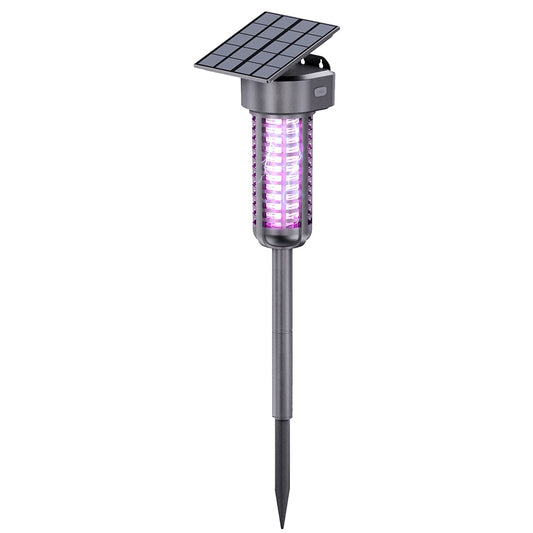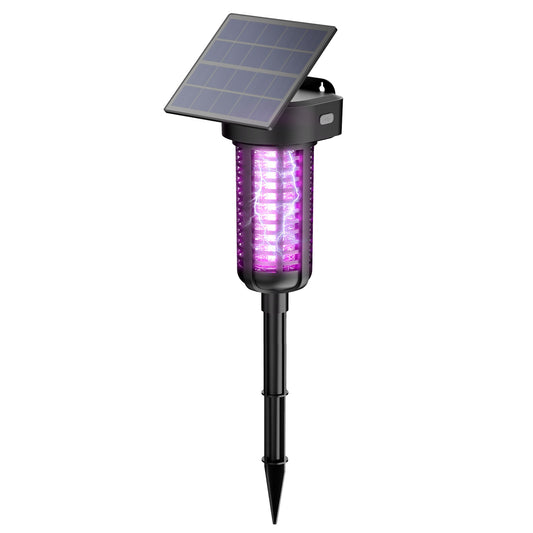How to Choose a Mosquito Killer for Backyard
1. Understanding Mosquito Killers
Mosquito killers come in various forms, each with its mechanism for attracting and eliminating mosquitoes. The main types include:Bug Zappers: These devices use UV light to attract mosquitoes and an electric grid to kill them.
Mosquito Traps: These traps use attractants like carbon dioxide, heat, and moisture to lure mosquitoes and capture them.
Chemical Sprays and Foggers: These products release insecticides that kill mosquitoes on contact.
Mosquito Repellents: These devices or sprays repel mosquitoes rather than killing them.
Natural and Biological Solutions: These include mosquito-repellent plants and natural predators like bats and birds.
2. Factors to Consider
When choosing a mosquito killer for your backyard, consider the following factors:
(1). Size of the Area:
For small to medium-sized yards, bug zappers or smaller mosquito traps may suffice.
Larger areas might require more powerful solutions like gas-powered mosquito traps or chemical foggers.
(2). Safety:
If you have children or pets, opt for mosquito killers that are safe and non-toxic, such as natural repellents or traps.
Chemical solutions should be used with caution, following all safety instructions.
(3). Effectiveness:
Evaluate how effective the mosquito killer is in attracting and eliminating mosquitoes.
Some devices are designed to target specific mosquito species, so ensure the product is suitable for the types of mosquitoes in your area.
(4). Maintenance:
Consider the maintenance requirements of the mosquito killer.
Bug zappers and traps may require regular cleaning and replacement of attractants.
Chemical sprays and foggers need periodic refilling.
(5). Cost:
Mosquito killers range from affordable solutions like citronella candles to more expensive traps and zappers.
Factor in both the initial cost and the ongoing maintenance expenses.
(6). Environmental Impact:
Choose environmentally friendly solutions if you’re concerned about the impact of chemicals on your garden or local wildlife.
Natural and biological solutions often have minimal environmental impact.
3. Types of Mosquito Killers
Bug Zappers:
Pros: Easy to use, no chemicals, effective for small areas.
Cons: May attract and kill beneficial insects, require regular cleaning.
Mosquito Traps:
Pros: Highly effective, can cover large areas, targeted attraction.
Cons: Higher initial cost, require maintenance and attractant replacement.
Chemical Sprays and Foggers:
Pros: Immediate results, effective for large areas.
Cons: Potential health risks, environmental impact, need for repeated application.
Mosquito Repellents:
Pros: Safe for children and pets, easy to use.
Cons: Repel rather than kill mosquitoes, effectiveness varies.
Pros: Environmentally friendly, safe, and sustainable.
Cons: May take longer to see results, effectiveness can vary.
4. Recommendations
For Small Backyards:
Bug Zappers-Look for models with a durable build and a powerful UV light.
Mosquito Repellent Plants-Plant citronella, lavender, or marigolds around the yard.
For Medium to Large Backyards:
Mosquito Traps-Choose propane-powered traps for larger areas.
Chemical Foggers-Use for immediate relief but ensure they’re used safely.
For All Backyards:
Natural Solutions- Attract bats or birds with bat houses and bird feeders, as they are natural predators of mosquitoes.
Choosing the right mosquito killer for your backyard involves considering the size of your space, safety concerns, effectiveness, maintenance, cost, and environmental impact. By understanding the different types of mosquito killers and their pros and cons, you can make an informed decision that ensures a mosquito-free backyard, allowing you to enjoy your outdoor space to the fullest. Whether you opt for high-tech mosquito traps or natural solutions, the key is to find a solution that works best for your specific needs and environment.


